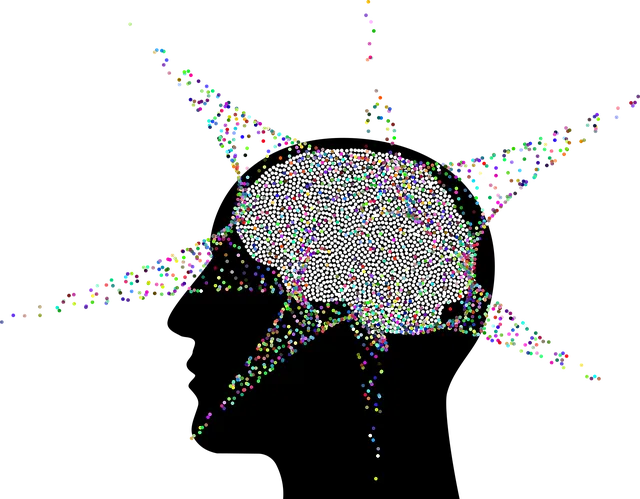Kaiser Permanente's mental health facility in Golden has pioneered Recovery-Focused Management (RFM), a transformative approach that shifts from disease-centric care to recovery and resilience. Using Mind Over Matter principles, RFM equips patients with coping strategies and self-esteem techniques for better control and well-being. Proactively, RFM catalyzes public awareness campaigns encouraging individuals to engage in their mental health journeys. For healthcare workers, Kaiser Permanente offers structured programs building crisis intervention skills and fostering compassionate care under stress. The RFM framework, known as Resilience, Flexibility, Mindfulness (RFM), empowers patients with self-care practices, reducing stigma and enhancing overall well-being. While engaging interest and impact measurement pose challenges, Public Awareness Campaigns and Stress Management Workshops promise broader emotional well-being promotion within the Golden community and beyond.
In today’s fast-paced world, mental health facilities are increasingly turning to Resilience-Focusing Measures (RFM) to bolster their patient care strategies. This approach, inspired by successful models like those employed by Kaiser Permanente in their mental health facilities, integrates resilience-building exercises into treatment plans. This article explores the transformative impact of RFM at the Golden Mental Health Facility, delving into its benefits, challenges, and promising future prospects, with a special focus on Kaiser Permanente’s pioneering methods.
- Understanding RFM and Its Impact on Mental Health Facilities
- Kaiser Permanente's Approach to Resilience Building Exercises
- Implementing RFM at the Golden Mental Health Facility
- Benefits, Challenges, and Future Prospects of RFM Implementation
Understanding RFM and Its Impact on Mental Health Facilities

In the context of mental health care, RFM (Recovery-Focused Management) represents a paradigm shift, particularly within Kaiser Permanente mental health facilities like the Golden location. This approach prioritizes recovery and resilience, moving away from traditional models that often focus on disease management. By integrating Mind Over Matter principles into their programs, these facilities aim to empower patients with coping mechanisms and self-esteem improvement strategies that foster a sense of control and well-being.
The implementation of RFM exercises isn’t merely about treatment; it’s a catalyst for public awareness campaigns development. Through creative interventions, patients are encouraged to navigate their mental health journeys actively, building resilience against challenges. This proactive approach not only enhances individual recovery but also contributes to the broader community’s understanding and support for mental health issues, ensuring that facilities like Kaiser Permanente Golden remain at the forefront of innovative care practices.
Kaiser Permanente's Approach to Resilience Building Exercises

Kaiser Permanente, a renowned mental health facility based in Golden, has pioneered an innovative approach to resilience building exercises within its comprehensive risk management planning for mental health professionals. Recognizing the profound impact of crisis intervention guidance on both healthcare providers and their patients, Kaiser Permanente has incorporated specific confidence-boosting initiatives into its routine practice.
These exercises are meticulously designed to equip mental health professionals with the necessary tools and skills to navigate high-stress situations effectively. Through structured programs that blend theoretical knowledge with practical application, Kaiser Permanente fosters an environment where resilience is cultivated, allowing healthcare workers to provide consistent, compassionate care even under immense pressure.
Implementing RFM at the Golden Mental Health Facility

The Golden Mental Health Facility, a Kaiser Permanente facility dedicated to providing top-tier care, recently integrated the RFM (Resilience, Flexibility, and Mindfulness) framework into its services, marking a significant step forward in emotional healing processes. This innovative approach aims to empower patients by equipping them with effective tools to navigate life’s challenges, ultimately fostering a sense of resilience within the community.
By incorporating practices that reduce the mental illness stigma and promote self-care, Golden Mental Health Facility is transforming lives. The RFM exercises are designed to strengthen individuals’ ability to cope with stress, anxiety, and depression, thereby enhancing their overall well-being. Through regular sessions, patients engage in activities that cultivate mindfulness, encouraging them to be fully present and aware of their emotions, a crucial aspect in managing mental health effectively.
Benefits, Challenges, and Future Prospects of RFM Implementation

The implementation of RFM (Resilience, Flexibility, and Mental Health) programs in settings like Kaiser Permanente’s mental health facility in Golden offers a multitude of benefits. These exercises are designed to strengthen individuals’ resilience, enabling them to better navigate life’s challenges and maintain emotional well-being. By fostering flexibility, RFM promotes adaptability in the face of stress and adversity, allowing individuals to recover more swiftly from traumatic or stressful events. This is particularly beneficial for mental health patients who often face complex psychological landscapes.
Despite these advantages, challenges accompany RFM implementation. Engaging and maintaining interest in resilience-building activities can be difficult, especially within structured facilities where routines may lack variety. Cultural differences and individual preferences also play a role, requiring tailored approaches to ensure effectiveness. Moreover, measuring the impact of such programs accurately is complex due to subjective nature of mental health outcomes. However, with continuous evaluation and adaptation, future prospects for RFM implementation look promising. Public Awareness Campaigns Development and Stress Management Workshops Organization could further enhance these initiatives, contributing to broader emotional well-being promotion techniques within the Golden community and beyond.
The implementation of Resilient Factor Model (RFM) exercises in mental health facilities, as exemplified by Kaiser Permanente’s innovative approach and the success at the Golden Mental Health Facility, holds immense potential for enhancing patient care. By focusing on resilience building, these programs offer a proactive strategy to support individuals navigating mental health challenges. As discussed, RFM can improve coping mechanisms, reduce relapse rates, and foster overall well-being. While challenges exist, such as resource allocation and staff training, the benefits are significant. Further research and widespread adoption of these practices could revolutionize care delivery in Kaiser Permanente mental health facilities and beyond, ultimately improving lives and fostering resilience in a supportive environment.






